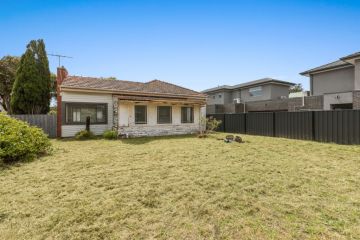Government incentives for your first buy

Government schemes might seem like a nice break for buyers who take advantage of them, but they do have a strategic purpose: to incentivise buyers to direct and maximise spending in a particular market segment.
While government incentives differ between states and territories, the ones currently available to first-home buyers primarily target newly constructed homes and regional purchases. We’ve looked at the best schemes currently on offer.
First-home deposit saving incentives
If you’ve been diligently saving for your first-home deposit, you might have heard of a national government incentive called the First Home Saver Account. It was designed to help first-time buyers save faster, with the government contributing an extra amount that is a percentage of your savings each year. The government, however, has stopped making these contributions as of May 13th 2014 and will be abolished on July 1st next year.
The abolishment of this scheme is unfortunate, but it’s not all bad news for first-home buyers. If you’re buying in WA, consider yourself lucky. The government is not offering a saving incentive, but they are offering up to $2000 to help you cover the incidental costs (such as legal fees) of buying your first home, provided the purchase price is under $400,000.
And for everyone else, there are ways you can save faster, by using term deposit and online saving accounts.
Both of these types of accounts generally attract higher interest than everyday-use accounts. For example, Westpac currently offers a rate of up to 4.15% p.a. on a term deposit and no setup, monthly service or management fees. On a $2,000 investment, that’s close to an extra $100 a year for very little effort at all.
Buying new versus existing homes
With capital cities becoming increasingly congested, the federal and state governments are keen to boost construction in the outer suburbs. They are doing this by offering financial incentives for new developments.
While the schemes vary from state to state, most states and territories currently offer incentives for newly constructed homes. In NSW, QLD and SA, you can get an extra $15,000 towards your newly constructed home; some states also offer stamp duty exemption or concession benefits. In NSW, the offer will reduce to $10,000 on 1 January next year – so if you’re keen to get into the market, it’s time to act quickly.
In the ACT, you can get an extra $12,500 for a new or ‘substantially renovated’ property. This means buyers of first-time converted warehouse apartments and retail spaces can also take advantage of these benefits.
Meanwhile, in VIC and WA, you can enjoy an extra $10,000 for a newly constructed home, as well as some stamp duty benefits. WA is one of the only states we found that are still offering a benefit for established homes: $3000 towards your purchase.
It pays to buy in the Northern Territory
Of notable mention is the offer currently available for buyers in the NT. If you’re thinking of buying in the Red Centre, you can enjoy a benefit of $26,000 towards your newly constructed home. You can even get an extra $12,000–$25,000 towards an established home in the NT, but only if you buy before the end of the year.
Why would you want to buy in the NT? Well, for starters, Darwin has experienced more price growth in the last 10 years than most capital cities. That, coupled with the great financial incentive, definitely makes buying in the NT something to think about.
Go bush and save
In NSW, buyers can enjoy additional grants for relocating to regional areas. The Regional Relocation Home Buyers Grant and Skilled Regional Relocation Incentive offer up to $17,000 towards a buyer’s regional purchase.
Affordable housing options
If conventional home buying is beyond your budget, consider affordable housing. In WA, the government is making affordable housing more accessible to first-home buyers through its lending provider, Keystart Home Loans. Low-deposit loans and shared equity schemes are on offer to help eligible buyers own their own homes. Specific loan assistance is available for public housing tenants, sole parents, people living with a disability and Indigenous people.
Defence Housing is another option to consider. Through a leaseback arrangement, government-arranged defence housing can provide you with guaranteed rent, a long-term lease and property care for a reduced price. This is particularly useful if you’re looking for a first investment rather than a residence.
With so many grants around, it’s worth enquiring with your state’s revenue department about your eligibility and the current schemes on offer. A few thousand dollars in grant money could make all the difference in your buying decision, so take the time to look into what’s on offer and enjoy any financial reprieve you can get.
We recommend
States
Capital Cities
Capital Cities - Rentals
Popular Areas
Allhomes
More
- © 2025, CoStar Group Inc.






